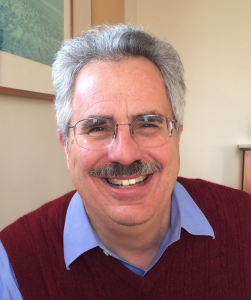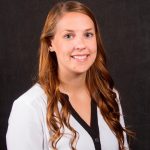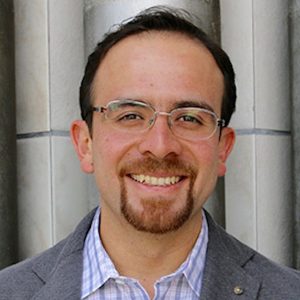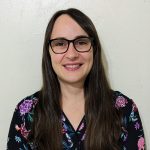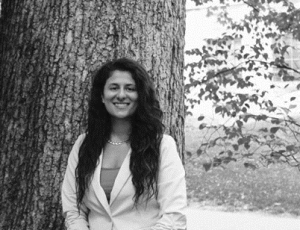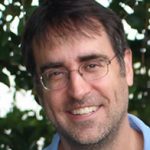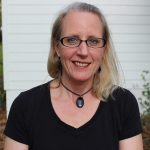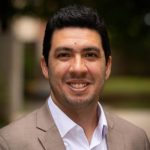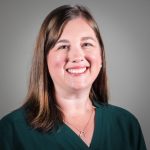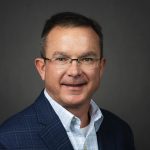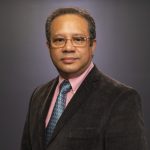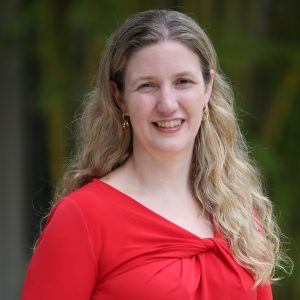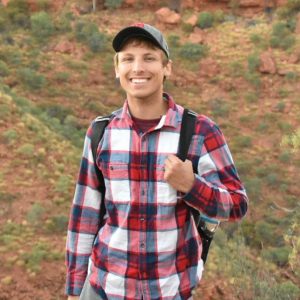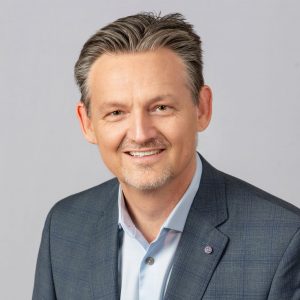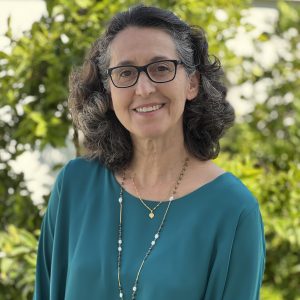Please join us on April 21st, 2023 for the first UF RiTL (Research in Teaching and Learning) symposium. This half day kick off event will take place at the Harn Museum and feature a Keynote Dr. Bob Mathieu, founder of the Center for the Integration of Research, Teaching, and Learning along with other guest speakers who are actively working on Scholarship of Teaching and Learning.
RiTL (Research in Teaching and Learning) at UF is specialized research that delves deeply into how students learn within and across disciplines. UF’s RiTL community of researchers and educators will engage in the deliberate, systematic, and reflective use of research methods to develop and implement teaching practices that advance field-specific learning. RiTL at UF includes scholarly work related to the Scholarship of Teaching and Learning (SoTL), Teaching as Research (TAR), Discipline-Based Education Research (DBER), etc.
Who should attend? All faculty including clinical faculty, instructional faculty, practitioners, faculty considering promotion, department Chairs, as well as staff and librarians interested in teaching focused research.
Register here.
Keynote Speaker
Robert D. Mathieu
Founding director of the Center for the Integration of Research, Teaching and Learning (CIRTL)
Robert D. Mathieu is the Albert E. Whitford and Vilas Distinguished Professor of Astronomy at the University of Wisconsin – Madison. At Princeton University, the University of California – Berkeley, the Harvard-Smithsonian Center for Astrophysics and for nearly 35 years at UW, he and his students have discovered the youngest binary stars, described the flow of matter from protostellar disks onto these stars, measured the masses of brown dwarf stars, explored the dynamical interactions between binary stars that power the evolution of star clusters, and most recently defined new evolutionary pathways of the stars as they exchange mass or collide during these interactions.
Mathieu also was the founding director of the international Center for the Integration of Research, Teaching and Learning, and recently stepped down as director of the Wisconsin Center for Education Research, the nation’s preeminent university research center in education.
His honors include a Guggenheim Fellowship, selection as a Fellow of the American Association for the Advancement of Science and of the American Physical Society, a Hilldale Award, and appointment as a Fulbright Scholar. He serves on the White House STEM Education Advisory Committee and numerous boards of directors. He has been the principal investigator for over $30M in research funding.
Early in his career Mathieu was honored for his teaching at both Berkeley and UW. Even so, he came to realize that his graduate and post-doctoral education had taught him little about teaching, especially research-based practices that increase the learning of all students. From this realization began the Center for the Integration of Research, Teaching and Learning, an international initiative to prepare future STEM faculty – graduate students and post-doctoral fellows – to become both forefront researchers and superb teachers. Twenty years later, the CIRTL Network includes 43 major research universities, representing a third of the Ph.D. production of the United States, and CIRTL participants are becoming the faculty at colleges and universities across the United States and beyond.
Agenda
| 8:30-9:00am | Breakfast Catered by SweetWater Location: Chandler Auditorium |
| 9:00 - 9:15am | Welcome: Chris Hass & Alexandra Bitton-Bailey Location: Chandler Auditorium |
| 9:15 - 10:45am | Keynote Workshop: Chris Hass, Bob Mathieu Bob Mathieu, the Founder and former Director of the Center for the Integration of Research in Teaching and Learning will facilitate a discussion on what is RITL? The significance of not only adopting research-based practices but also the institutional value of sharing what we as educators learn through our teaching. Q&A CIRTL Practitioner Presentations: Graduate students participating in the CIRTL Practitioner Certificate receive advanced pedagogical instruction and complete a teaching-as-research project. As part of a year-long cohort, they developed and executed a teaching-as-research project that contributes novel insights to one of the following areas: Evidence-Based Teaching, Learning Communities, Learning-through-Diversity. Group Discussion: |
| 10:45 - 10:55am | Break |
| 11:00 -11:50am | Breakout A
In this session I will present my trajectory to my first SoTL experience and outcomes. Facilitating educational research in student learning and engagement using the Terracotta Canvas Plug-in Many instructors and instructional designers are constantly making a variety of changes to existing classes to improve student learning. Changes can include, but are not limited to, adding new reading material, presenting a lecture in a slightly different format, adding a video to solidify a concept etc… But how can one determine if these subtle changes are effective? A recent plug-in for Canvas called Terracotta helps facilitate experimental research designs within Canvas assignments in order to analyze the process of identifying impacts for learning outcomes. This breakout session will introduce educators to the Terracotta plug-in and showcase how it can be utilized in classes. |
| 11:50am -1:00pm | Lunch Location: Main Room |
| 1:00 - 1:50pm | Breakout Session B Bridging the Gap: From Research to Practice in STEM Classrooms Amie Baisley Location: Chandler Auditorium
Qualitative Research Boot Camp: How to design, implement, and analyze data to successfully conduct SoTL research This session will provide an introduction to basic qualitative research methods which can be used in the implementation of research in teaching and learning. Participants will guided through designing and implementing qualitative research.
|
| 2:00 - 3:00pm | Discussion and Wrap Up Location: Chandler Auditorium Facilitated by Megan Mocko, Jeffrey Pufahl, and our international partners Ricardo Andrés López Celi and Denise de Cassia Moreira Zornoff. |
Presenters

 Amie Baisley Ph.D
Amie Baisley Ph.D
Thomas O. Hunter Instructional Assistant Professor
Dr. Baisley is currently an Instructional Assistant Professor in the Department of Engineering Education in the UF Herbert Wertheim College of Engineering. She received her Ph.D. in Engineering Education from Utah State University and her M.S. in structural engineering and B.S. in civil engineering from Arizona State University. After completing her M.S., she taught the sophomore level mechanics courses at Arizona State University. Dr. Baisley’s research interests include engineering student persistence particularly during the first two years, linking engineering education research to the classroom, and the use of alternative pedagogies and assessment strategies. Her teaching goals include creating student-centered, engaged environments that allow students to establish a strong foundation for the fundamentals.
Ricardo Andrés López Celi
Lecturer
Ricardo is a lecturer at Universidad San Francisco de Quito. His passion is finding solutions for different life problems through the language of math. After finishing his master’s degree in applied Math, part of his work has been teaching and spreading his enthusiasm for math. In the last seven years, he has been teaching math and statistics in different formats for undergraduate and graduate students. Nowadays, he is interested in ways to broaden his students' understanding of different cultures and math applications using virtual exchanges.
 Danielle Collins, Ph.D.
Danielle Collins, Ph.D.
Lecturer, Dog, Cat, & Horse Classes
Dr. Collins is a post‐doctoral associate lecturer at the University of Florida, working with both Drs.
Patrick and Iske Larkin. She teaches four online courses with Dr. Patrick Larkin every semester (The Cat,
The Dog and The Horse, and The Horse‐Health and Management). She also conducts a variety of
educational projects including serving as a beta tester for Terracotta and is familiar with setting up and
carrying out experiments with this platform. She has recently published a manuscript with Drs. Maness
and I. Larkin, on enhancing online learning experiences with the use of guest lecturers and is currently
working on a second manuscript.
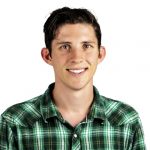 Donald Coon
Donald Coon
Graduate Researcher, College of Agriculture and Life Sciences
Despite a bachelors in agriculture education and a masters in controlled environment agriculture (CEA) at University of Arizona, his original goal of teaching high school agriculture was lacking “real world experience”. This led to working at Disney, Traders Hill Farm and Plenty. Realizing that he wanted to teach at a higher level than high school he began a doctorate at University of Florida researching crop physiology and predictive modeling for worst case scenarios in CEA.
 Dr Melissa Mae Lamanna
Dr Melissa Mae Lamanna
Creating Evidence-Based Résumés and Teaching Portfolios for the Competitive World
State University of New York, Cobleskill Campus.
Department of Natural Sciences
Dr Lamanna earned her PhD in Microbiology from Indiana University Bloomington where she investigated molecular mechanisms of cellular division. In her post-doc at the University of Florida Dr Lamanna continued her scientific investigations as well as teamed up with UF’s Center for Teaching Excellence to begin her pedagogic journey. Since then she has and continues to actively develop her teaching craft. Dr Lamanna believes that Education, the benevolent transfer of knowledge, is one of the most precious gifts to be given. As a professor, Dr Lamanna combines her love of science with STEM education research and captains a small group of talented undergraduate researchers affectionately known as the “Science Squad”.
 Patrick Larkin, Ph.D.
Patrick Larkin, Ph.D.
Program Director of The Dog, Cat, & Horse Classes
Dr. P. Larkin is the Program Director of the online undergraduate Dog, Cat, & Horse Classes that are
offered at the College of Veterinary Medicine. His classes are taken by students at the University of
Florida and throughout the country. He has received several teaching awards and currently serves as a
beta tester for the Terracotta plug‐in.
 Iske Larkin, Ph.D.
Iske Larkin, Ph.D.
Director of Aquatic Animal Health Program
Dr I. Larkin received her PhD in the UF College of Veterinary Medicine, and she has over 20 years of
experience studying and teaching manatee physiology, anatomy, reproduction and behavior. She has
developed and coordinates 4 online courses and 2 certificates in aquatic animal health, offered to upperlevel
undergrads, graduate students and veterinary students at UF, across the US and abroad.
 Samuel J. Martins, Ph.D
Samuel J. Martins, Ph.D
Assistant Professor at the Plant Pathology Department
A native of Brazil, I earned my B.S. in Agronomy from the Federal University of Lavras Brazil, as well as an M.S. and Ph.D. in plant pathology from the same institution, with part of his Ph.D. completed at the University of Delaware. From 2015 to 2017 I served as an Assistant Professor at the Federal University of Goias Brazil, where I taught IPM and General Plant Pathology and spent the next 3 years as a postdoctoral researcher at Penn State University. At Penn State I was engaged in research involving blotch on mushrooms (Agaricus bisporus) with the ultimate goal of providing the industry with biologically based disease management tactics to add to the environmental management practices already in place.
I joined the UF Department of Plant Pathology in 2020 as an Assistant Professor, with responsibilities in teaching (50%) and research (50%). I teach the courses PLP2000: Plants, Plagues & People, IDS 2935 What Are Plants Talking About? (SP2022) as well as Tropical Plant Pathology (FS2022). My research focuses on assessing, manipulating and extracting bacteria from the phytobiome to manage plant disease, improve nutrient uptake and diminish the impact of abiotic stress. I am broadly interested in crop diseases caused by bacteria, seed-microbial interactions, microbiome and biocontrol.
 Heather Maness, Ph.D.
Heather Maness, Ph.D.
Assistant Director, Learning Analytics and Assessment
Dr. Maness is a triple Gator and has worked at UF in various capacities for over 15 years. In her role with UFIT’s Center for Instructional Technology and Training, she partners with instructors to enhance learning outcomes by implementing data‐informed pedagogical strategies and strategically leveraging educational technology. Her research focuses on learning analytics and stakeholder evaluation of curricula elements for continuous improvement. She is an advocate for authentic, equitable assessment practices and frequently conducts service work.
 Dr. Grady Roberts
Dr. Grady Roberts
Professor and Distinguished Teaching Scholar
Dr. Grady Roberts is a Professor of Agricultural Education at the University of Florida. He is a teacher of teachers working in a context of agriculture. His students become university faculty, agriculture teachers, and extension agents. He strives to always model effective teaching practices in his classes as a model for his students. Roberts also serves as Director of the CALS Teaching Resource Center, where he leads faculty development across the college. Roberts’ research program focuses on global education and documenting the impacts of faculty development programs domestically and abroad. He has over 160 refereed journal articles and has contributed to securing over $35 million in externally funded projects. Outside of work, Grady is married with 3 children. He enjoys woodworking and home brewing. He and his wife also raise horses.
 Jose Silva-Lugo, Ph.D.
Jose Silva-Lugo, Ph.D.
Learning Analytics and Training Specialist
Dr. Jose Silva-Lugo has worked for UFIT’s Center for Instructional Technology and Training since Summer 1999. He has had several roles during this time, and he is currently teaching statistical packages (SPSS and R) and conducting research in Learning Analytics. Furthermore, he has provided statistical consultations to over 100 departments and has collaborated with research projects at UF Center of Latin American Studies and at the Department of Agricultural Education and Communication.
 Megan Mocko
Megan Mocko
Lecturer
Megan Mocko is a lecturer at the Warrington College of Business. Megan has taught statistics in multiple formats: face-to-face, hybrid, and completely online. She is interested in engaging everyone in the classroom using educational technology, learning analytics, and virtual exchanges to promote communication about data across international boundaries.
 Luke Rodewald
Luke Rodewald
PhD Candidate
College of Liberal Arts and Sciences, English Department
Luke Rodewald is a PhD candidate in English at the University of Florida, working in the environmental humanities and ecocriticism. His dissertation, "Campus Ecology," explores climate pedagogy and conceptions of place in environmental education. His writing appears or is forthcoming in venues such as The Journal of Environmental Education, The Journal for the Study of Religion, Nature, and Culture, and Ecocene.
 Jeffery Pufahl
Jeffery Pufahl
Research Assistant Professor
Jeffrey is a Research Assistant Professor and publicly engaged applied theatre scholar in the Center for Arts in Medicine and was the UF College of the Arts Undergraduate Teacher of the Year in 2020 and International Educator of the Year in 2022. Jeffrey’s work at UF is a combination of teaching applied theater, directing and producing health related theater and film projects, community engaged research/research translation, and health communication. His local and international research focuses on how the arts, specifically theatre and video, can be used to investigate community health issues in order to catalyze public engagement and critical dialogue around health and wellness.
 Denise de Cássia Moreira Zornoff, Ph.D.
Denise de Cássia Moreira Zornoff, Ph.D.
Academic Support Assistant
Denise Zornoff is an infectious diseases physician, working at Botucatu Medical School UNESP as Administrative Coordinator of the Pedagogical Support Center. She is part of the faculty development team, as an innovation technologies coach, and collaborates with the local internationalization actions, such as The Brazilian Virtual Exchange Program (BRaVE).

